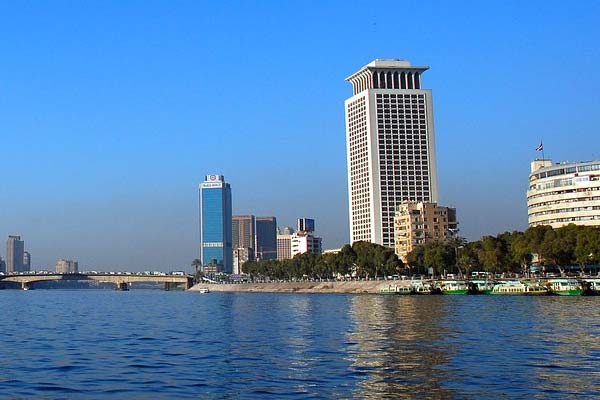Can IGCSE Students Apply for Malaysia University? Explained
Malaysia is a famous destination for international students who wish to pursue higher education. One of the most common questions students ask is whether IGCSE students can apply to Malaysian universities.
The IGCSE is an internationally recognized qualification equivalent to the UK’s GCSE examinations or the GCE O-Levels in Singapore.
Students who have completed their IGCSE certification can enroll in a private university in Malaysia, depending on the entry requirements.
However, it is essential to note that there are many different pathways to choose from after IGCSE, which can sometimes be confusing.
Furthermore, IGCSE graduates can promptly access scholarships and secure early admission to colleges and universities, often ahead of SPM graduates. The IGCSE employs a grading scale ranging from A* to G, with U indicating “Ungraded.”
To apply for a pre-university program at a private HEI in Malaysia, students must have SPM or IGCSE qualifications or their equivalent.
Therefore, IGCSE students who wish to apply to Malaysian universities must ensure they meet the entry requirements of the university or college they want to attend. It is recommended that students research the entry requirements of their desired institution and contact the admissions office for further information.
Understanding IGCSE
IGCSE corresponds to the GCSE exams in the UK and the GCE O-Levels in Singapore, offering students a well-rounded curriculum across multiple subjects.
IGCSE subjects are divided into five groups: Languages, Humanities and Social Sciences, Sciences, Mathematics, Creative, Technical, and Vocational.
Students must take a minimum of five subjects, including English and Mathematics. The IGCSE examinations are held twice a year, in June and November, and the results are issued in August and January.
The IGCSE holds global recognition from universities and employers, prized for its rigorous academics and diverse subjects. Numerous universities worldwide acknowledge IGCSE certification for admission, contingent upon meeting entry criteria.
🌟 Hey Students! 🚀 Ready for the ultimate experience? Join us on Studentsinside.com's Facebook, YouTube, WhatsApp, and LinkedIn. Click now for tips, fun, and success vibes! 🌈✨ #StudentLife #JoinUs
In Malaysia, IGCSE graduates can apply to public and private universities, depending on their grades and the university’s entry requirements.
The IGCSE examinations test students’ knowledge and understanding of their studied subjects. The examinations assess students’ ability to apply their knowledge to real-world situations, analyze and evaluate information, and communicate their ideas effectively. The IGCSE examinations are graded from A* to G, with A* being the highest grade.
The popularity of IGCSE is rising in Malaysia, particularly among students aspiring to study abroad or in international schools. The Malaysian government acknowledges it as an equivalent to the local Sijil Pelajaran Malaysia (SPM) qualification.
Pre-University Programmes in Malaysia
After completing their IGCSE, students who wish to pursue higher education in Malaysia must first take a pre-university program.
Several pre-university programs are available in Malaysia, including the Malaysian Matriculation Programme (Matrikulasi), Foundation programs, and Canadian pre-university programs.
The Malaysian Matriculation Programme is a one-year pre-university preparatory program offered by the Ministry of Education, Malaysia. This program is one of the education pathways to Malaysia’s Public Universities. Students who complete the program will receive a Matriculation Certificate, which Malaysian universities recognize.
Foundation programs, on the other hand, are offered by private higher education institutions in Malaysia. These programs are designed to prepare students for undergraduate study in a specific field. The duration of these programs varies, but they typically take between one and two years to complete.
Canadian pre-university programs are also available in Malaysia. Canadian International Matriculation Programme (CIMP) and the American Degree Transfer Program (ADTP) offer these programs. These programs are recognized by Canadian and American universities, respectively. The duration of these programs is typically two years.
It is important to note that each pre-university program has its entry requirements. Students should carefully review the entry requirements for each program before applying. Additionally, many higher education institutions offer scholarships and financial aid to deserving students.
Entry Requirements for Malaysian Universities
Malaysia has several public and private universities that accept international students. Each university has its own set of entry requirements, but some general entry requirements apply to most universities in Malaysia.
General Entry Requirements
To be eligible for admission to a Malaysian university, international students must meet the following criteria:
- Academic Achievement: Students must have completed their secondary education with good academic achievements. Most universities require a minimum CGPA of 2.5 or equivalent.
- Language Proficiency: Mastery of the instructional language is essential for students. Many universities mandate a minimum IELTS score of 6.0 or a TOEFL score 550.
- Age Requirements: Students must be at least 18 years old at the time of application.
Sijil Pelajaran Malaysia (SPM)
SPM serves as a nationwide final exam for Malaysian secondary students and is a prerequisite for university entry. International students seeking to study in Malaysia must attain a Bahasa Melayu credit (Grade C) in the SPM exam.
GCE O-Levels
International students who have completed their secondary education with GCE O-Levels must have at least five credits, including English Language, Mathematics, and Science.
Malaysian University English Test (MUET)
MUET serves as a language proficiency requirement for select Malaysian universities. Prospective international students must attain a minimum band score of 3 to be eligible for application.
Choosing the Right Course
Choosing the right course is crucial for students pursuing higher education in Malaysia. It involves identifying their interests, passions, academic achievements, and abilities and combining that with the future job demand and salary for the courses they are looking at.
One way to do this is to explore the different majors available in Malaysia’s universities. Students interested in science and mathematics can consider engineering, computer science, or medicine courses. On the other hand, those who are inclined toward the humanities can look at courses like law, psychology, or communication.
Another approach is to identify the skills that students have or want to develop. For example, problem-solving and critical thinking students can consider business, economics, or accounting courses. Those with strong communication skills can look at journalism, public relations, or advertising courses.
It is also essential to consider the job market demand for the courses students are interested in. This can help them to make informed decisions about their future career prospects. For instance, courses in healthcare, technology, and finance are currently in high demand in Malaysia.
Scholarships and Financial Considerations
For IGCSE students seeking admission to Malaysian universities, scholarships, and financial factors play a pivotal role. Fortunately, there are diverse scholarship opportunities tailored to specific eligibility criteria.
Among these is the Khazanah Global Scholarship, accessible to Malaysian citizens who have completed IGCSE or its equivalent. This scholarship comprehensively covers tuition fees, living costs, and additional allowances for those pursuing undergraduate or postgraduate studies in Malaysia and abroad.
Another avenue is the Taylor’s College Merit Scholarship, accessible to students with exceptional academic performance in their IGCSE exams. This scholarship can cover up to 100% of tuition fees for the program duration, contingent on the level of achievement.
Besides scholarships, students must also consider their budget and tuition fees when applying to Malaysian universities. Tuition costs fluctuate based on the course and institution, with private universities generally bearing higher fees than public counterparts. A prudent approach entails researching and comparing these fees before finalizing application choices.
Students can contemplate part-time work or internships during their studies to mitigate expenses. Many Malaysian universities extend on-campus part-time job opportunities, such as the library or student services division roles. Exploring internships in their chosen field is also beneficial, offering valuable work experience and covering living costs.
Top Universities in Malaysia
Malaysia has a diverse range of universities, both public and private that offer a variety of courses to students. Some of the top-ranked universities in Malaysia include Taylor’s University, Asia Pacific University, and Universiti Malaya.
Taylor’s University is a private university known for its excellent facilities and high-quality education. It offers various courses, including business, engineering, and hospitality. Taylor’s University has a strong reputation for producing highly skilled graduates and well-prepared for the workforce.
Asia Pacific University is another top-ranked university in Malaysia. It is a private university known for its innovative approach to education. Asia Pacific University offers a range of courses in areas such as business, computing, and engineering. The university is known for its strong emphasis on practical skills and real-world experience.
Universiti Malaya is a public university and one of Malaysia’s oldest and most prestigious universities. It is known for its vital research programs and commitment to academic excellence. Universiti Malaya offers various medicine, law, and engineering courses.
Other top-ranked universities in Malaysia include Universiti Teknologi Malaysia, Universiti Kebangsaan Malaysia, and Universiti Putra Malaysia. These universities are known for their vital academic programs and commitment to producing well-prepared graduates for the workforce.
Career Prospects and Job Demand
Malaysia offers a variety of courses for IGCSE students to pursue their higher education. However, students are also concerned about future job prospects and demand for their chosen field. Choosing a course that provides a successful career with a stable salary and high job demand is vital.
According to the search results, there are top courses that have future high job demand and salary after completing IGCSE or O-Levels. Some of the courses that have high job demand in Malaysia are:
- Medicine
- Engineering
- Computer Science
- Accounting and Finance
- Business Administration
- Law
These courses are in high demand and provide stable salaries and career growth opportunities. For instance, a medical graduate can expect to earn a starting salary of RM 3,500 to RM 5,000 per month, which can increase up to RM 10,000 per month with experience and specialization.
Moreover, the demand for healthcare professionals is expected to increase due to Malaysia’s aging population. Similarly, the need for engineers and computer scientists will likely increase due to the country’s focus on technology and innovation.
Hence, IGCSE students should opt for courses that match their passions and talents while showing strong future demand. Prior research into the job market and industry trends is crucial in making this decision.
Application Process
The application process for IGCSE students seeking admission to a Malaysian university is straightforward. They can apply directly to their desired university or utilize the Education Malaysia Global Services (EMGS) portal facilitated by the Malaysian Ministry of Education.
Before applying, students should research the universities they are interested in and ensure they meet the admission requirements. Most Malaysian universities require a minimum of five IGCSE subjects, including English and Mathematics, with grades ranging from A to C. Some universities may require additional subjects or a minimum grade point average (GPA).
Once students have selected their desired universities, they can apply online through the university’s website or EMGS portal. This involves furnishing personal details, academic records, and supporting documents like statements of purpose, recommendation letters, and English proficiency proof.
Alternatively, students can contact the university’s International or Admission Office to inquire about or submit applications via email or post. Many universities provide an online inquiry form for students seeking additional application-related information.
Within a few weeks of submission, students can anticipate a university response. Successful applicants will obtain an offer letter that requires acceptance to secure enrollment. Unsuccessful candidates can either reapply to other universities or seek feedback by contacting the respective institution.
Study Opportunities for International Students
International students have a variety of study opportunities available to them in Malaysia. The country has a diverse and multicultural environment, with various universities and colleges offering courses in multiple fields.
Many options for students who have completed their IGCSE or O-levels are available for further study. Malaysia’s private universities recognize the IGCSE qualification, making it possible for students to apply for undergraduate programs directly after completing their IGCSE.
International students can also apply for foundation programs designed to provide a pathway to undergraduate studies. These programs are typically one year and provide students with the necessary skills and knowledge to succeed in their chosen field of study.
Malaysia’s public universities also offer study opportunities for international students. Students can apply directly to the top universities in Malaysia, including the University of Malaya, which is the first choice for many of Malaysia’s top students.
For students who are interested in studying abroad, Malaysia is an attractive destination. The country offers a high-quality education at an affordable cost, making it an ideal choice for students looking to study overseas.
In addition to universities and colleges, there are also international schools in Malaysia that cater to the needs of expatriate students. These schools offer a curriculum that is recognized globally, making it possible for students to continue their studies without interruption.
Quality of Education
Malaysia boasts a globally recognized education system overseen by the Malaysian Qualifications Agency (MQA), which accredits higher education institutions to maintain standards. Grading follows a 0 to 4.0 scale, reflecting students’ higher education performance.
Universities in Malaysia offer updated curricula for local and international students. Faculty members are experienced, qualified, and dedicated to delivering quality education while supporting students’ academic pursuits.
Living in Malaysia
Malaysia is a vibrant and diverse country with a rich cultural heritage. It is a popular destination for international students due to its affordable cost of living, high-quality education, and welcoming environment.
Accommodation
In Malaysia, students can choose from various accommodation options, such as on-campus dormitories, off-campus apartments, and homestays. Costs differ based on location and housing type, typically ranging between RM400 to RM550 per month.
Facilities
Malaysia offers a wide range of facilities and services to cater to the needs of its residents. Students can easily find libraries, computer labs, sports centers, and cafeterias on campus. Many public facilities, such as parks, museums, and shopping centers, are also available.
Values
Malaysia is a multicultural country that values diversity and inclusivity. The country has a strong sense of community and is known for its friendly and hospitable people. Students can expect to be welcomed with open arms and to feel at home in Malaysia.
Malaysian Culture
Malaysia is a cultural fusion, drawing from Malay, Chinese, Indian, and Western influences. It observes various festivities like Hari Raya Aidilfitri, Chinese New Year, and Deepavali.
Students can grasp Malaysian heritage through cultural engagements, sampling local dishes, and visiting historical sites.
Degree Programmes
After completing IGCSE, students can pursue a degree program in Malaysia. The entry requirements for degree programs vary depending on the course and the university. Generally, students need a pre-university qualification, such as A-Levels, STPM, or a diploma, to be eligible for a bachelor’s degree program.
Some universities in Malaysia also accept IGCSE certification as a pre-university qualification for admission to a degree program. However, it is essential to note that the acceptance of IGCSE certification varies from university to university and from course to course.
For example, the Bachelor of Dental Surgery program at the University of Malaya requires students to have completed A-Levels or STPM. In contrast, the Bachelor of Dental Surgery program at the International Medical University accepts students with IGCSE certification as well as other pre-university qualifications.
Apart from degree programs, students can explore the American Degree Transfer Program (ADTP). This initiative permits students with IGCSE certification and other pre-university qualifications to transfer to a U.S. university after two years of study at a Malaysian institution.
Foundation Programmes
Foundation Programmes are a popular pathway for students to enter tertiary education in Malaysia after completing their IGCSE. These programs are designed to prepare students for undergraduate studies by providing them with the necessary knowledge and skills.
Most private universities in Malaysia provide accredited Foundation Programs recognized by the Malaysian Qualifications Agency (MQA) and the government. These one-year programs are more affordable than external Pre-University Programs.
While Foundation Programs are generally less challenging than external Pre-University courses, they appeal to students seeking a gradual transition to university-level studies. Admission criteria vary based on the course and university.
Students who complete a Foundation Programme can progress to a degree course at the same university or transfer to another university in Malaysia or overseas.
Not all universities accept Foundation Programmes as a pathway to undergraduate studies, so students should check with their desired universities before enrolling in a Foundation Programme.
Studying History in Malaysia
Malaysia has a rich and diverse history that spans over thousands of years. From its early kingdoms to its colonial past, Malaysia has a unique story to tell. There are several options for students interested in studying history in Malaysia.
One of the most popular options is to pursue a degree in history at a Malaysian university. Many universities in Malaysia offer undergraduate and graduate programs in history. These programs typically cover many topics, including Malaysian history, Southeast Asian history, and global history.
In addition to traditional classroom learning, many history programs in Malaysia offer hands-on learning opportunities. For example, students may have a chance to participate in archaeological digs or conduct research in local archives.
Another option for students interested in studying history in Malaysia is to enroll in a pre-university program. These programs are designed to prepare students for university-level study and typically last one to two years. Many pre-university programs in Malaysia offer courses in history and other social sciences.
Finally, students can explore history by enrolling in online courses or distance learning programs. Numerous Malaysian universities provide online history courses, catering to those who require a flexible alternative to in-person classes.
Studying in Top Private Colleges
Upon finishing their IGCSE, students can explore prominent private colleges in Malaysia. These institutions provide an array of specialized courses and programs tailored to meet the aspirations of those seeking advanced education.
These colleges have state-of-the-art facilities, experienced faculty, and a diverse student population.
Private colleges in Malaysia offer Foundation Programs specifically designed for students who have completed their IGCSE.
These programs are typically more affordable and accessible than external Pre-University courses. Upon completion, students can apply for degree programs at leading private universities in Malaysia.
Top private colleges in Malaysia include Sunway College, Taylor’s College, and HELP University. These colleges offer courses and programs in business, engineering, medicine, and law.
They also have partnerships with top universities worldwide, which provides students with opportunities to study abroad and gain international exposure.
To apply for a program at a private college in Malaysia, students must have completed their IGCSE or its equivalent. They must also meet the minimum entry requirements for the program they wish to apply for.
Private colleges in Malaysia offer a variety of programs, including diploma programs, degree programs, and postgraduate programs.
Career Goals
After completing IGCSE, students may have different career goals in mind. Some may want to pursue higher education in Malaysia, while others want to explore job opportunities in various industries. It is essential to have clear career goals to make informed decisions about the education pathway.
Students should consider their interests, skills, and personality traits when considering career goals. They should also research the job market and industry trends to identify potential career paths. Additionally, students should consider the education and training required for their desired careers.
Malaysia offers career opportunities in various industries, including healthcare, finance, technology, and tourism. Students can pursue careers in engineering, business, medicine, law, and many others.
Students should choose an education pathway that aligns with their interests and skills to achieve their career goals. They should also consider the accreditation of the course, tuition fees, and job prospects after graduation.
Furthermore, students should seek guidance from academic advisors, career counselors, and industry professionals to make informed decisions about their education and career paths.
Studying in the UK and Australia
After completing their IGCSEs, Malaysian students who wish to study in the UK or Australia have several options. One cost-effective way is to enroll in transfer or twinning programs some Malaysian private universities offer.
These programs allow students to complete their foundation year in Malaysia before transferring to a UK or Australian university to complete their degree.
Cambridge International qualifications, including IGCSEs, are recognized by universities worldwide. Many universities in the UK, US, and Canada require a combination of Cambridge International A Levels and IGCSEs to meet their entry requirements.
Additionally, some UK universities offer foundation year programs for international students who still need to meet the standard entry requirements.
In Australia, transfer or twinning programs are also available for Malaysian students who wish to study there. Students can complete their foundation year in Malaysia before transferring to an Australian university to complete their degree. It is important to note that entry requirements for Australian universities may vary depending on the course and institution.
Studying in Malaysian Institutions
Malaysia has become a sought-after hub for global students pursuing higher education due to its diverse public and private universities and colleges.
These institutions offer a wide spectrum of programs, with relatively affordable living costs and tuition fees compared to other countries.
For Malaysian students, university entry routes vary based on their academic background and qualifications. Those who have completed SPM or STPM can apply to public universities through the Ministry of Education’s online platform. Private institutions might have prerequisites like a minimum GPA or specific subjects.
International students also have pathways through the government’s Education Malaysia Global Services (EMGS) or direct university applications. While requirements differ, they generally involve academic transcripts, English proficiency scores, and a valid passport.
Students in Malaysian institutions experience a blend of in-person and online classes emphasizing interactive and experiential learning. These institutions also prioritize research and innovation, allowing students to partake in cutting-edge projects and industry collaborations.







